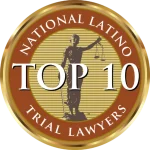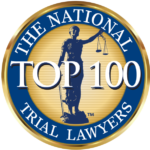All interesting and complicated cases involve battles of the experts, persons whose education, experience, skill, and training provides knowledge not within the ken of the common man. For a plaintiff, a skilled expert can illuminate a pathway of causation that is both manifest and clear. For a defendant, a skilled expert can reveal the fallacies of such pathways as being seductive, but otherwise tortuous and illogical leaps of fantasy.
Indeed, jurisprudence has long acknowledged that some emotional arguments are simply too difficult to overcome with logic. Juries, after all, are not comprised of scientists and specialists trained in the rigors of scientific evaluation, but are rather comprised of everyday persons who happen to have the time and availability to sit for the extended duration of a trial. Such persons are asked to balance the logical dictates of science against the emotionally rewarding panacea of providing recovery to a sick or dying plaintiff. To serve as a balance against such claims, the Court’s role as a gatekeeper to the introduction of expert evidence is of paramount importance.
Lauded by some and loathed by others, Florida’s independent and anachronistic adherence to the Frye rule for determining the admissibility of expert testimony is now at an end. In Re: Amendments to the Florida Evidence Code, No. SC19-107, May 23, 2019. Daubert is the new law of the land of Florida, although it may be subject to later challenges in individual cases and controversies.
This story has been long in the making. In the long distant past of 1923, before the advent of computers, instant mass communication, or most things that we now consider as staples of modern living, the Frye Court had written:
Just when a scientific principle or discovery crosses the line between the experimental and demonstrable stages is difficult to define. Somewhere in this twilight zone the evidential force of the principle must be recognized, and while courts will go a long way in admitting expert testimony deduced from a well-recognized scientific principle or discovery, the thing from which the deduction is made must be sufficiently established to have gained general acceptance in the particular field in which it belongs. Frye v. United States, 293 F. 1013 (D.C. Cir. 1923)
On its face, Frye applied only to new and novel opinions. Once generally accepted, Frye challenges were no longer appropriate. Some practitioners further relied upon the “pure opinion” exception which allowed expert testimony to the extent that it was based only upon the expert’s personal experience and training. These two factors significantly limited the scope, number, and effect of Frye challenges.
With some limited exceptions, this has been the law of Florida, even when other courts moved to a Daubert analysis. In 1993, the Daubert court noted that the Federal Rule of Evidence 702 made no requirements of general acceptance as a precondition of admissibility. Daubert v. Merrell Dow Pharmaceuticals, 509 U.S. 579 (1993). Instead, Daubert focused on multiple factors including:
- Whether a theory or technique can be and has been tested;
- Whether the theory or technique has been subject to both peer review and publication;
- The known or potential error rate of the method;
- The existence and maintenance of standards controlling its operation; and
- Whether it has attracted widespread acceptance within the relevant scientific community.
These factors were to be applied in a flexible manner so that the court could fulfill its role as a “gatekeeper.” In 1999, the Supreme Court confirmed that Daubert applied to all expert testimony, not merely scientific testimony. Kumho Tire Co. v. Carmichael, 526 U.S. 137 (1999).
While the overwhelming majority of state courts have adopted some version of Daubert, Florida had staunchly adhered to the minority position, despite several moves and ripostes by the Florida legislature and the Florida Supreme Court. In 2013, the Florida legislature voted to adopt the Daubert standard. In 2017, the Florida Supreme Court rejected that adoption to the extent it was procedural because it raised “grave constitutional concerns.” In Re: Amendments to the Florida Evidence Code, No. SC16-181, February 16, 2017.
In DeLisle v. Crane Co., et al., 258 So. 3d 1219 (October 15, 2018), the Florida Supreme Court held that the legislature had exceeded its authority in adopting Daubert. The Florida Supreme Court held that the legislature had the power to enact substantive law, while the Florida Supreme Court had the power to enact procedural law. It found the medical causation testimony at issue in Delisle to be neither new nor novel, and thus not subject to a Frye analysis. In doing so, it allowed for the admission of substantial evidence stricken by the appellate court.
On May 23, 2019, without a specific case or controversy before it, the Florida Supreme Court suddenly switched directions. Citing its exclusive rule making authority, the Court now adopted Daubert as a procedural rule of evidence. It did not, however, address any “constitutional or other substantive concerns that have been raised about the amendments [which] must be left for a proper case or controversy.” It also did not request or rely upon any newly submitted reports from any sources as potentially required by Florida Rule of Judicial Administration 2.140, instead indicating that such matters had been extensively provided previously.
As Florida has followed Frye since its inception, this represents a watershed event in Florida jurisprudence. While the admissibility of experts in Florida will now align more closely with almost 40 other jurisdictions, an increased number of challenges to expert testimony are now expected, and Florida litigants will need to rely more heavily upon the precedent of other courts.




